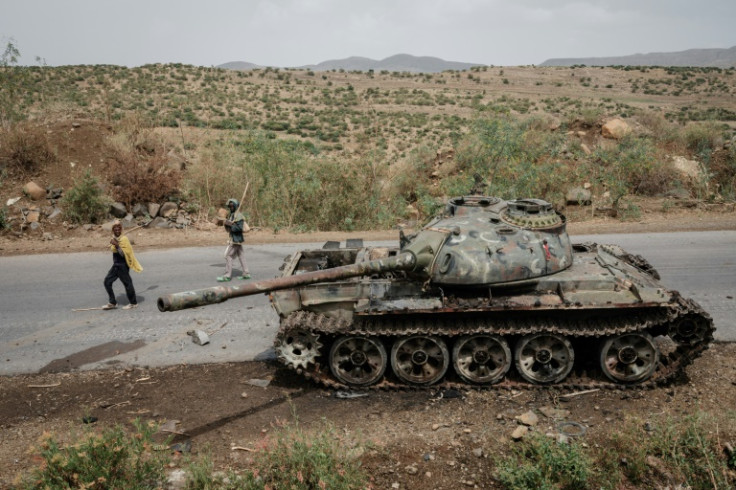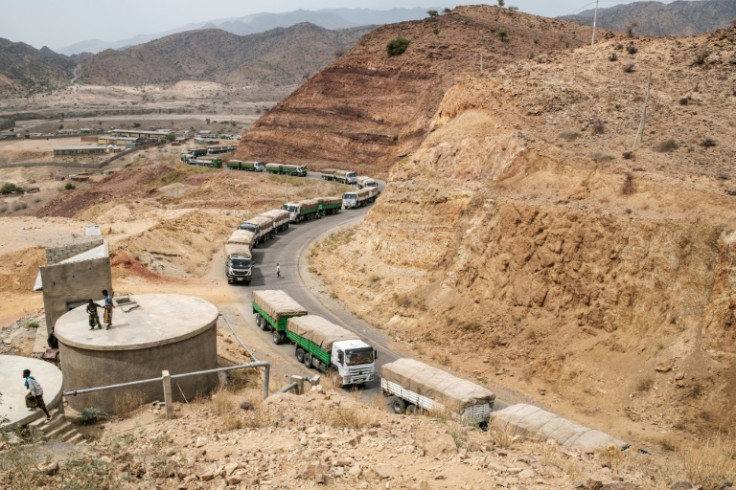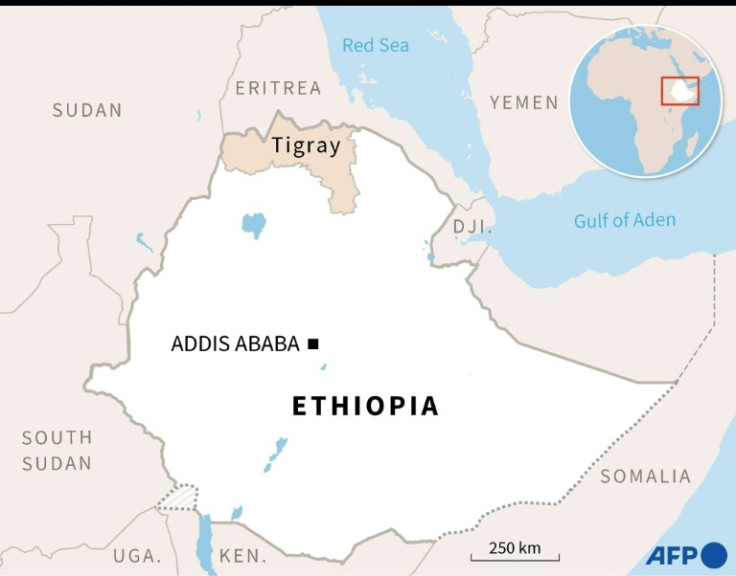Calls For Restraint After Fighting Returns To Ethiopia

The international community appealed for restraint on Thursday after fighting resumed in northern Ethiopia between government forces and Tigray rebels, scuppering a truce and casting a shadow over hopes for peace.
The situation on the ground was unclear a day after fresh fighting erupted on the border of Tigray, where the warring sides accused each other of igniting the first major clashes in five months.
Rebel authorities in Tigray said on Wednesday that government forces failed to breach their defensive lines, but offered little detail on the status of combat or casualties.
The government of Prime Minister Abiy Ahmed has also not provided an update on the fighting, or whether combat has spread beyond the scenes of Wednesday's battles on Tigray's southern border.
Spokespeople for Abiy's government and the rebel Tigray People's Liberation Front (TPLF) did not respond to AFP's requests for comment about the situation on the ground.
The return to combat has alarmed the international community, which has been pushing both sides to peacefully resolve the brutal 21-month war in Africa's second most populous nation.
US Secretary of State Antony Blinken said the truce reached between the warring parties in March had "reduced violence and saved lives".
"We are concerned that renewed fighting puts that at risk. We call on the Ethiopian Government and TPLF to redouble efforts for peace to bring a permanent end to the conflict."
EU foreign policy chief Josep Borrell urged both sides to pull back from "a full blown war", saying: "Reports of renewed conflict in Northern Ethiopia cast a shadow on the prospect for peace."
UN chief Antonio Guterres and envoys from Britain, Turkey, the African Union and the East African trade bloc IGAD made similar calls for restraint and a commitment to dialogue.
On Thursday, Deputy Prime Minister and Foreign Minister Demeke Mekonnen told diplomats that Ethiopia was "prepared to defend the nation's territorial integrity and sovereignty".
"But it is equally committed to using peaceful means to put an end to the conflict and collaborating with humanitarian organisations to lessen needless suffering," he told a gathering of foreign envoys in Addis Ababa.
He also accused the TPLF of commandeering aid supplies meant for Tigray, which is in the grips of a major humanitarian crisis.
The UN's World Food Programme on Thursday accused the TPLF of seizing half a million litres of fuel from a warehouse in Tigray, a region the rebels have held since ousting government troops in June 2021.
"We demand the Tigrayan Authorities return these fuel stocks to the humanitarian community immediately. As the next harvest is not until October, our deliveries of life-saving food could not be more urgent or critical to the survival of millions," WFP executive director David Beasley said in a statement.
Vicky Ford, the UK's Minister for Africa, said the resumption of fighting would "only deepen the already catastrophic humanitarian situation" in Tigray where food, fuel and medicine is scarce.
The March truce paused the worst of the bloodshed and allowed for aid convoys to slowly return to Tigray, where the UN said last week nearly half the population is suffering from a severe lack of food.
Since the end of June, Abiy's government and the rebels have repeatedly stated their willingness to enter peace negotiations, but disagreed on the terms of such talks.
In recent weeks, too, they have accused each other of preparing for battle.
Addis Ababa wants talks without preconditions under the auspices of the AU, which is headquartered in the Ethiopian capital.
The rebels are demanding electricity, telecommunications and banking services be restored to Tigray before talks begin, and reject the AU's envoy Olusegun Obasanjo as mediator.
In a statement dated August 23, TPLF leader Debretsion Gebremichael said "two rounds of confidential face-to-face" meetings with top civilian and military officials had taken place, the first acknowledgement by either side of direct talks.
Abiy sent troops into Tigray in November 2020 to topple the TPLF after months of tensions with the party that dominated Ethiopian politics for three decades until he took office in 2018.
The TPLF mounted a comeback, recapturing Tigray and expanding into Afar and Amhara, before the war reached a stalemate.
The conflict has killed untold numbers, with widespread reports of atrocities including mass killings and sexual violence.


© Copyright AFP 2025. All rights reserved.





















